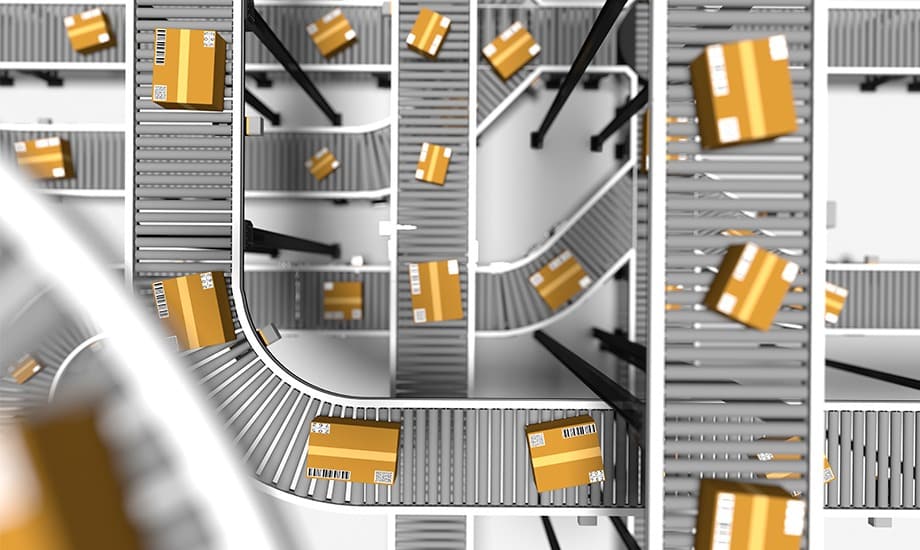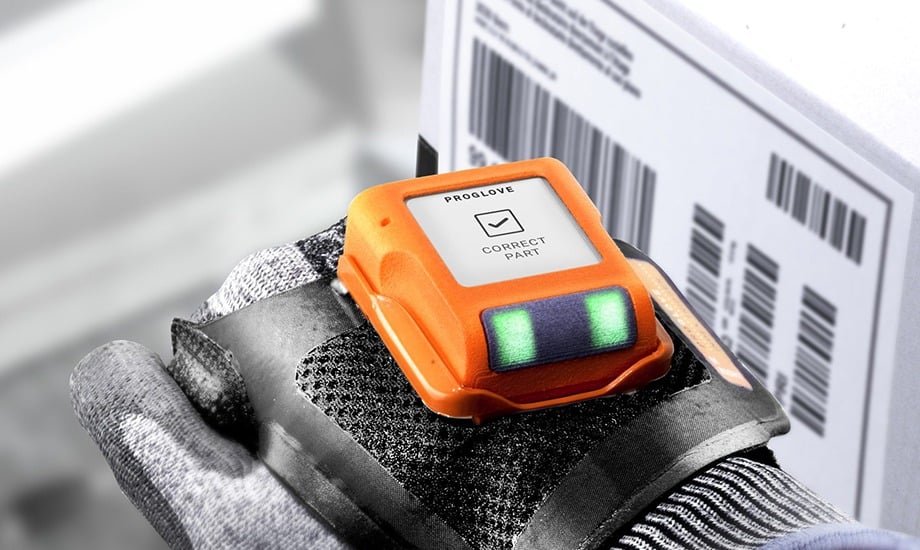More and more companies want and need to optimize their intralogistics in order to serve their customers quickly and sustainably. The Dortmund-based proLogistik Group is the German market leader with its warehouse management software and specially developed industrial PCs. Together with the Swiss companies Dataphone and Xelog, it is now also setting its sights on the European market.
Today, we can only smile at the fact that in the past we were not allowed or did not want to know exactly what was actually happening behind the company walls in order to somehow get a grip on all the workflows, storage and delivery processes. Slips of paper and sentences like “I think we still have three left, I’ll have a look later” are a thing of the past. Digitalization, e-commerce and sustainability debates ensure that lean, efficient and optimally controllable intralogistics not only bring competitive advantages but, on the contrary, keep companies alive in the long and medium term.
Worldwide expertise
The Dortmund-based proLogistik Group has become the leading German logistics consultant with its wide range of warehouse management software and computers and services specially developed for industry. Heilbronn-based LogiSoft-S GmbH has also been part of the company since April 1, and in mid-June a merger was agreed with the two globally active Swiss companies Dataphone and Xelog. This is an even greater response to the challenges of a highly fragmented market, says Jörg Sänger, Managing Director of the proLogistik Group and CEO of the new Group holding company.
Companies that want to replace their old logistics systems with modern warehouse management software for the first time can switch to efficient systems quickly and sustainably with proLogistik. Modern warehouse management has long been about controlling material flows, incoming and outgoing goods, shipping routes or even hazardous goods that need to be moved reliably from A to B in an adaptable manner at all times. With modularly configurable hardware and special data analysts, the specific requirements of each company are scrutinized in advance.
Handling cold chains and fresh produce correctly
The climate and sustainability debate also requires companies to come up with special solutions that not only save energy, but also rethink and regulate storage locations and shipping routes in an ecological way. Shelving structures, for example, are becoming higher and more flexible again, deliveries are being planned efficiently and, if necessary, jointly with other companies. proLogistik has designed the Foodline warehouse management system, which is certified annually by the Fraunhofer Institute, especially for the food industry. It also monitors the necessary temperatures for fresh and frozen items and includes additives such as dry ice in the transportation and interim storage structures. The system even handles barcode control or batch feedback. Under the umbrella term Techline, proLogistik specifically supports the sanitary, building materials and technical wholesale trade, which requires customized solutions for products and materials of different sizes and weights. On the one hand, this is about efficient warehousing, but also about sensible networking of stocks, people and goods movements.
More networking and transparency
It is becoming increasingly important for small and large companies to be able to collect, pack and invoice certain quantities of their goods quickly and easily when placing an order. With paperless picking, which can be carried out in one or more stages or even in parallel, every company has nothing but advantages. The end of paperwork means that the recording of stock and orders can be adapted to new circumstances and technologies at any time. proLogistik therefore not only analyzes the specific picking process in advance, but also develops suggestions for improvement and thus optimizes the entire picking process. Why, for example, is a certain product not dispatched immediately, but has to be checked or signed off beforehand? Many processes could be digitized even further and therefore faster.
The increasing networking of goods and services also generates data, which in turn can be used for new automation or robot connections. Questions that will arise in the foreseeable future are, for example: How can standard interfaces for autostore providers become even more efficient? How do new mobile shelving systems affect storage, but also the handling of day-to-day shipping? How can employees benefit even more from modern warehouse management software with modern cloud systems? What new things can sales departments offer their customers as a result of an increased efficient and sustainable supply chain?
Data analysts, who are desperately needed in many companies to evaluate processes and data in order to derive recommendations for action and establish new infrastructures, will also recognize an optimal supply chain as the number one learning tool. For this reason, as some consultants have been saying for some time, warehouse management systems that have been reformed as comprehensively as possible are perhaps the best training opportunity of all to learn for the future of your own company.
E-commerce and overarching claim
In the fast-moving world of e-commerce in particular, there is a constant demand for new solutions that are guaranteed to work in order to satisfy customers, especially during discount campaigns such as Black Friday or Cyberweek. Systems must be able to work flexibly – and use forecasts to get the best out of the installed warehouse management system. The connection to store systems requires custom-fit and convincing integration processes that enable immediate customer communication in addition to the actual order processing. Does the customer know where the product he has ordered is currently located? Do they also want to know how and where it was stored and how much energy was used to produce and deliver it?
In the future, modern webshops should be able to control small-scale processes, shipping systems and reliable inventory management, as well as address specific issues relating to ecological footprints. Only those companies that are prudent and adaptive in all areas, from e-commerce to automation and the use of AI, will be able to achieve this. However, only logistics software that constantly incorporates new, higher-level approaches into day-to-day business can have this kind of learning ability. “Our overarching aim is to take a consistent best-of-breed approach in order to provide the best products and solutions for every industry along the supply chain,” says Dr. Felix Speerli, future CPO of the Group holding company of proLogistik, Dataphone and XELOG.
On its way to becoming the market leader for independent warehouse management systems in Europe, the Group has so far carried out 1500 WMS installations in the retail and food trade. Each individual system signals one thing above all: only secure inventory management can ensure a company’s continued existence.





